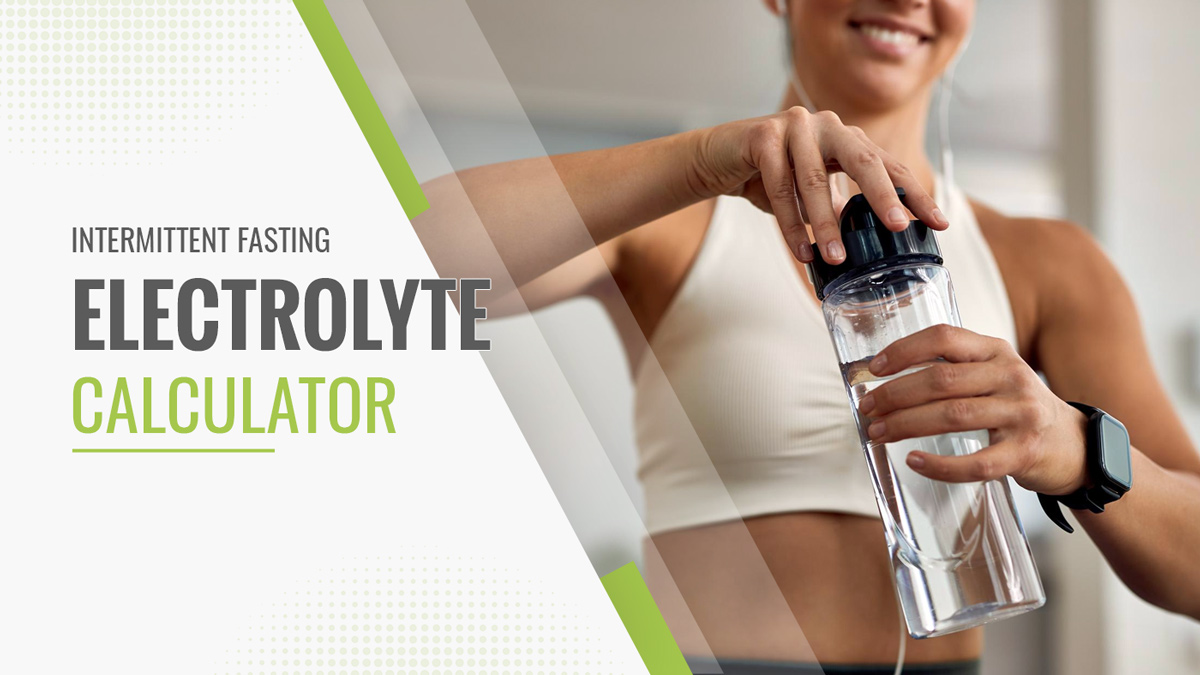Caffeine is a very potent stimulant. In fact, up until the early 1960s, it was on the list of banned substances in the Olympics. Drinking more than a couple of cups of coffee would get you disqualified. Needless to say, this was a long time before high-caffeine pre-workout supplements became a thing!
Consuming caffeine gives you mental and physical energy. In studies, exercisers who consume caffeine before training are usually able to train harder and longer than their caffeine-free compatriots. It also improves focus and productivity (1).
However, excess caffeine can be harmful, causing issues such as:
- Anxiety
- Dizziness
- Insomnia
- Irritability
- Stomach upsets
- Tremors
Such side effects could negate many of the benefits of consuming caffeine. For example, if drinking coffee stops you from sleeping, but you have to use coffee to give you the energy to get through your day, you could find yourself stuck in a vicious loop.
But how much caffeine is too much? Use our caffeine calculator to determine how much caffeine you consume per day and how that compares to the FDA’s recommended amount.
Caffeine Calculator
Results:
Your caffeine intake: calculated mg
Max recommended dose: calculated mg
What is the Caffeine Calculator?
The Fitness Volt caffeine calculator is a tool for determining how much caffeine in milligrams you consume per day and how that figure measures up against the recommended daily intake for caffeine.
Knowing how much caffeine you consume can be very useful. For starters, it may help explain why you are suffering from certain side effects, such as anxiety or insomnia. It may also be reassuring to know that you AREN’T consuming too much caffeine, and it’s safe for you to have an extra cup of tea or coffee or even a shot of pre-workout.
Being more caffeine aware may also allow you to time your caffeine intake more strategically, so you can get the best out of it when you need it most.
For example, you might consume most of your daily caffeine intake shortly before training so that you can work out harder and longer. You might also want to introduce a caffeine cutoff and avoid consuming caffeine after 3-4 pm so that it won’t affect your sleep.
Our calculator makes it easy to determine how much caffeine you consume, regardless of the source.
How Does the Caffeine Calculator Work?
To use the caffeine calculator, you simply input your number of servings per day. We’ve included most major caffeine sources in the dropdown menus, including:
- Mugs of filter coffee (350 g): 140 mg per mug
- Mugs of instant coffee (350 g): 100 mg per mug
- Energy drinks (250 ml): 80 mg per can
- Cups of tea (190 g): 50 mg per cup
- Shots of espresso: 45 mg per shot
- Cups of green tea (190 g): 40 mg per cup
- Cans of cola (330 ml): 40 mg per can
The one thing missing from this list is pre-workouts. Most pre-workouts contain a hefty dose of caffeine, ranging from 100 to 400 mg per serving. So, make sure you also include any pre-workout in your final caffeine calculations.
How to Use the Caffeine Calculator
Our caffeine calculator is very easy to use. Just follow these step-by-step instructions to reveal your result!
- Select your age and also indicate if you are pregnant.
- Next, use the first dropdown menu and choose your beverage and how many servings you had.
- Repeat for all the sources of caffeine in your diet.
- Hit “calculate.”
- Read off your results in the box below.
Interpreting your Results
After hitting “calculate,” you will receive the following results:
- Your daily caffeine intake in milligrams (mg).
- Your recommended maximum daily of caffeine per day.
Armed with this data, you’ll know whether you are consuming too much caffeine, potentially increasing your risks of unwanted side effects, or you can still afford another serving to beat your energy slump.
Your maximum recommended daily caffeine intake is based on your age and health status (2):
- Adults – 400 mg
- Pregnant women – 200mg
- Teenagers (13-18) – 100mg
- Children (below 13) – zero
However, some people should limit or avoid caffeine altogether. For example, if you have high blood pressure, consuming caffeine could increase it further. People with anxiety disorders should also limit their caffeine intake. If in doubt, speak to your doctor to determine the best caffeine intake for you.
How to Improve your Score
So, you’re consuming more caffeine than you should; you are not alone! While the average American ingests 165 mg of caffeine per day, many people consume way more than this, and exercisers are especially likely to go above the recommended amount. That’s because we KNOW that caffeine helps increase energy and fat burning, making our workouts more productive.
The best way to lower your caffeine intake is to make the switch to low and no-caffeine products.
Examples include:
- Decaffeinated coffee, tea, and soda.
- Fruit and herbal teas, which are naturally caffeine-free.
- Drink more water and less coffee/tea.
- Reduce your intake of chocolate.
- Don’t allow kids to consume caffeinated energy drinks.
- Don’t use energy drinks as a mixer, e.g., vodka and Red Bull.
- Check how much caffeine is in your pre-workout, and consider using a product that contains less caffeine or is caffeine-free.
Finally, don’t just drink coffee and tea out of habit, e.g., on waking, during work breaks, with meals, etc. Instead, be more mindful of your caffeine intake and track it so you know how much you consume per day. Many people are surprised to learn just how much they’re ingesting.
Of course, it’s entirely normal to let your caffeine intake get away from you occasionally. Maybe you met friends for a couple of cups of coffee and then had a shot pre-workout before hitting the gym. That probably adds up to 400mg of caffeine right there!
However, so long as your AVERAGE caffeine intake is less than 400mg per day, the risk of side effects should be very low.
Caffeine Calculator FAQ
1. What are the benefits of consuming moderate amounts of caffeine?
Before you start cutting out caffeine altogether, it’s worth remembering that this naturally occurring substance has some noteworthy benefits. These include:
- Increased energy
- Increased fat burning
- A faster metabolism
- Decreased appetite
- Improved cognition, memory, and mental performance
- Improved athletic performance
- Better heart health
Of course, caffeine is also moderately addictive and can be habit-forming, so it’s best to avoid relying on it so heavily that you cannot function without it.
2. Which are the healthiest sources of caffeine?
Many sources of caffeine are quite unhealthy, such as soda, coffee sweetened with syrups, and sweetened green tea. However, there are plenty of healthier caffeine sources, many of which offer additional benefits. These include:
- Green tea
- Earl Grey tea
- Unsweetened iced tea
- Americano coffee
- Espresso
- Filter coffee
- Matcha
- Yerba mate
Caffeine pills are NOT a healthy source of caffeine.
3. Is caffeine anhydrous healthy?
Caffeine anhydrous is a type of synthetic caffeine often used in sports supplements, such as fat burners and pre-workouts. It’s fast acting but tends to cause more unwanted side effects than naturally-sourced caffeine.
Natural caffeine tends to be less harsh and easier to tolerate. This helps to explain why some seasoned coffee drinkers often feel buzzed after a shot of pre-workout.
Some products include l-theanine, which is an amino acid that helps smooth the effect of caffeine anhydrous. However, l-theanine is naturally present in black and green tea. Some people add it to their coffee to make it easier to tolerate and better for mental acuity.
4. What is the lethal dose of caffeine?
Habitually consuming more than 400mg of caffeine per day can be bad for your health. However, you’d need to consume a whopping 10 grams to kill yourself. This equals about 70 mugs of coffee, 125 energy drinks, or 200 cups of tea. Needless to say, the likelihood of ingesting this much caffeine is very low indeed.
However, you should still consider 400mg per day as your upper target for caffeine consumption. That way, you can enjoy all the benefits of caffeine while minimizing unwanted side effects.
5. Do coffee, tea, etc., break a fast?
Intermittent fasting (IF) and other types of fasting are quick and effective ways to burn fat and lose weight. Fasting may also be good for you by boosting autophagy or cell renewal.
All you have to do is go without food for the prescribed period while your body gets busy burning fat. Simple!
While you can consume water on all fasts, coffee, tea, and other low and calorie-free beverages are often not allowed. It all depends on the fast you are following and the type of drink we’re talking about.
Any coffee or tea beverage that contains a lot of calories is NOT permitted while fasting. Examples include:
- Bulletproof coffee
- Flavored coffee
- Coffee with milk or cream
- Sweetened tea and coffee
- Sugary soda
Some fasts do allow herbal tea, black tea, and black coffee. These drinks often contain five calories or less per serving. However, other fasts are stricter and do not permit coffee, tea, etc., in any form. Check the details of your fast to find out if coffee is off the menu along with all food.
Caffeine Calculator – Wrapping Up
Caffeine provides many benefits, both physical and mental. However, it’s all too easy to consume too much and start suffering from unwanted side effects, such as tremors, anxiety, increased heart rate, and insomnia.
Because of this, the FDA recommends that most people limit their caffeine intake to 400mg or less per day. However, some sensitive individuals, teenagers, kids, and pregnant women should consume less than this.
Use our caffeine calculator to see if you are ingesting too much caffeine. Remember, you CAN have too much of a good thing!
References:
1– PubMed: A review of caffeine’s effects on cognitive, physical, and occupational performance https://pubmed.ncbi.nlm.nih.gov/27612937/
2– US Food and Drug Administration: Spilling the Beans: How Much Caffeine is Too Much? https://www.fda.gov/consumers/consumer-updates/spilling-beans-how-much-caffeine-too-much
Tip: If you're signed in to Google, tap Follow.











